-
chevron_right
Ex-Mangamura Owner Must Pay $11m to Publishers; He Says He Won’t
news.movim.eu / TorrentFreak · Thursday, 18 April - 18:18 · 3 minutes
 From a standing start in 2016, manga piracy site Mangamura (Manga Village) took just two years to become the largest site of its type and the single largest online piracy threat Japanese publishers had ever encountered.
From a standing start in 2016, manga piracy site Mangamura (Manga Village) took just two years to become the largest site of its type and the single largest online piracy threat Japanese publishers had ever encountered.
Publishers including Shogakukan, Kadokawa, and Shueisha, and their anti-piracy partner CODA, estimated that in its relatively brief time online, Mangamura had caused a staggering $2.91 billion in losses. In April 2018, in the wake of a government announcement that detailed emergency website blocking against sites including Mangamura, the site suddenly disappeared and was never seen again. Then came the reckoning.
A criminal investigation eventually led to the arrest of the site’s operator, Romi Hoshino, in Manilla. After being deported to Japan and arrested, Hoshino faced a criminal trial and in June 2021, was handed a three-year prison sentence and financial penalties totaling around $650K.
Publishers Sue For Damages
Hoping to recoup some of their losses, in the summer of 2022 manga publishers Kodakawa, Shogakukan, and Shueisha filed a civil action against the former operator of Mangamura. Their lawsuit sought damages of 1.9 billion yen ($12.3 million at today’s rates) from Hoshino, supported by evidence obtained from Google and Cloudflare , among others.
Following his release in 2022, Hoshino hit the headlines last September when promoting the imminent release of his new book, The Truth About Mangamura , which appears to have generated mostly positive reviews on Amazon .
Publishers Handed Big Win in Tokyo
Whether Hoshino’s book was a commercial success isn’t clear. However, a decision handed down today at the Tokyo District Court in the civil action, brought against him by the publishers, carries a damages award big enough to upset even the most successful authors.
According to the publishers’ complaint, around 8,200 pirated copies of manga and magazines (73,000 volumes) were offered on Mangamura. With monthly visits of up to 100 million, totaling 538 million between April 2017 and April 2018, the publishers estimated overall damages in excess of 320 billion yen, around $2 billion at today’s rates.
The publishers’ 1.9 billion yen claim, based on a calculation that multiplied the average number of views by the sales price of each of the 17 infringed works in suit, was the largest ever claim against a pirate site in Japan. Even then, it represented just a small part of the overall damages attributable to the site, the publishers argued.
Judge Masaki Sugiura agreed that Mangamura caused damage to the publishers but awarded less than the 1.9 billion yen requested. The award of 1.7 billion yen, around $11 million, is still believed to be a record amount for a piracy case in Japan.
Hoshino and Publishers Respond to Decision
Outside the Tokyo District Court, Romi Hoshino appeared happy to answer questions about the decision. The full video is embedded below for any native speakers or those who have any confidence in the accuracy of the transcript. While the translation doesn’t feel authentic enough for us to report on directly, there’s no doubt when it comes to Hoshino’s overall opinion of the decision.
He rejects the decision, the amount, and even the result of the first trial that landed him behind bars. In the short term, Hoshino says he may appeal today’s decision. Ultimately, however, he lacks any motivation to balance the books.
“I have no intention of paying anything,” he said, effortlessly closing the loop.
A statement published on Kadokawa’s website notes that the award for damages is appropriate; it also concedes that it will be “impossible to recover all of it.”
“We believe that it is of great significance that the illegality and liability for compensation regarding ‘Mangamura’ have been recognized in the judicial arena. Copyright infringement cases are not limited to pirated sites targeting manga, but also include movies, anime, etc., and the scope of damage is wide-ranging. Our company intends to take a resolute stance in dealing with cases of rights infringement,” Kadokawa concludes.
From: TF , for the latest news on copyright battles, piracy and more.



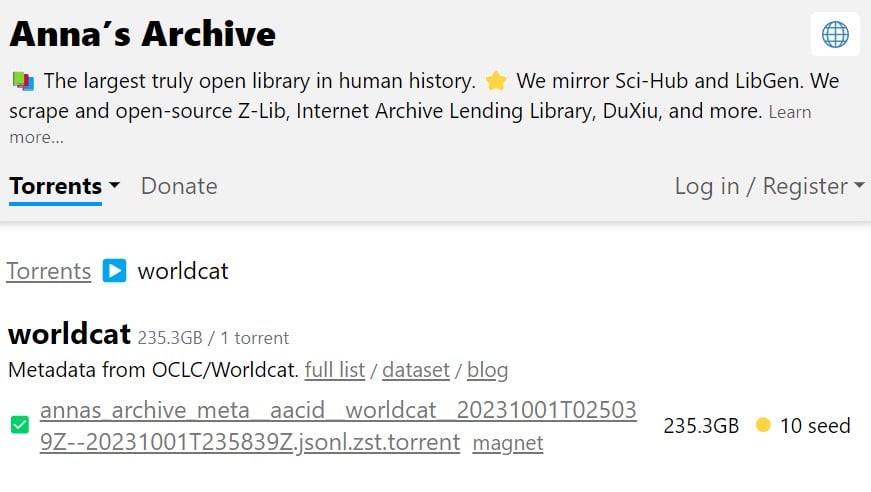
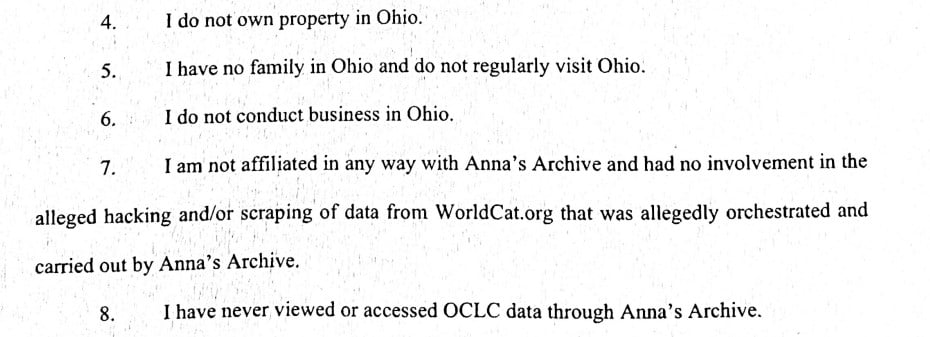
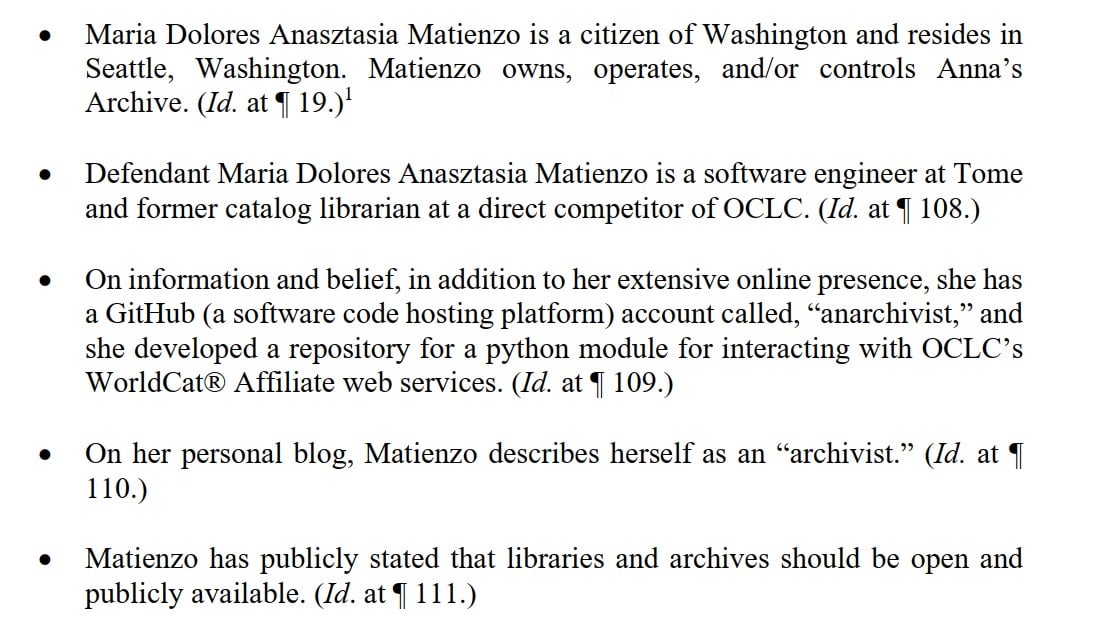
 In a complaint filed at a Nashville federal court
In a complaint filed at a Nashville federal court


 Internet provider Cox Communications has been on the sharp end of several piracy lawsuits in recent years.
Internet provider Cox Communications has been on the sharp end of several piracy lawsuits in recent years.
 Private torrent trackers with Danish roots have long been the go-to place for file-sharers in Denmark. Not anymore.
Private torrent trackers with Danish roots have long been the go-to place for file-sharers in Denmark. Not anymore.

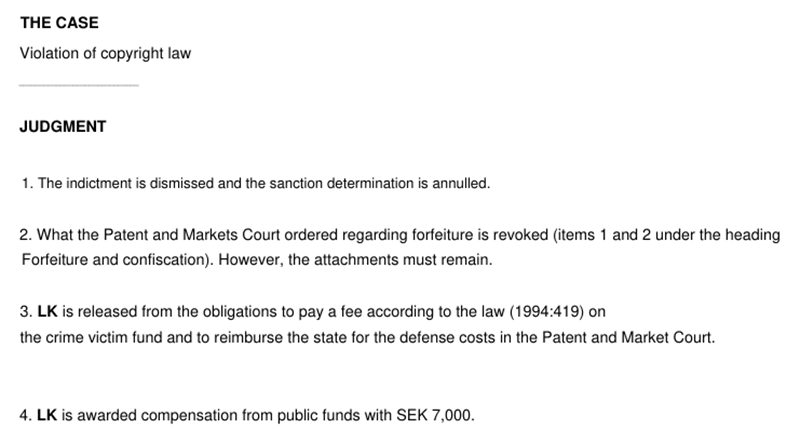
 Online piracy continues to present massive challenges for the entertainment industries.
Online piracy continues to present massive challenges for the entertainment industries.
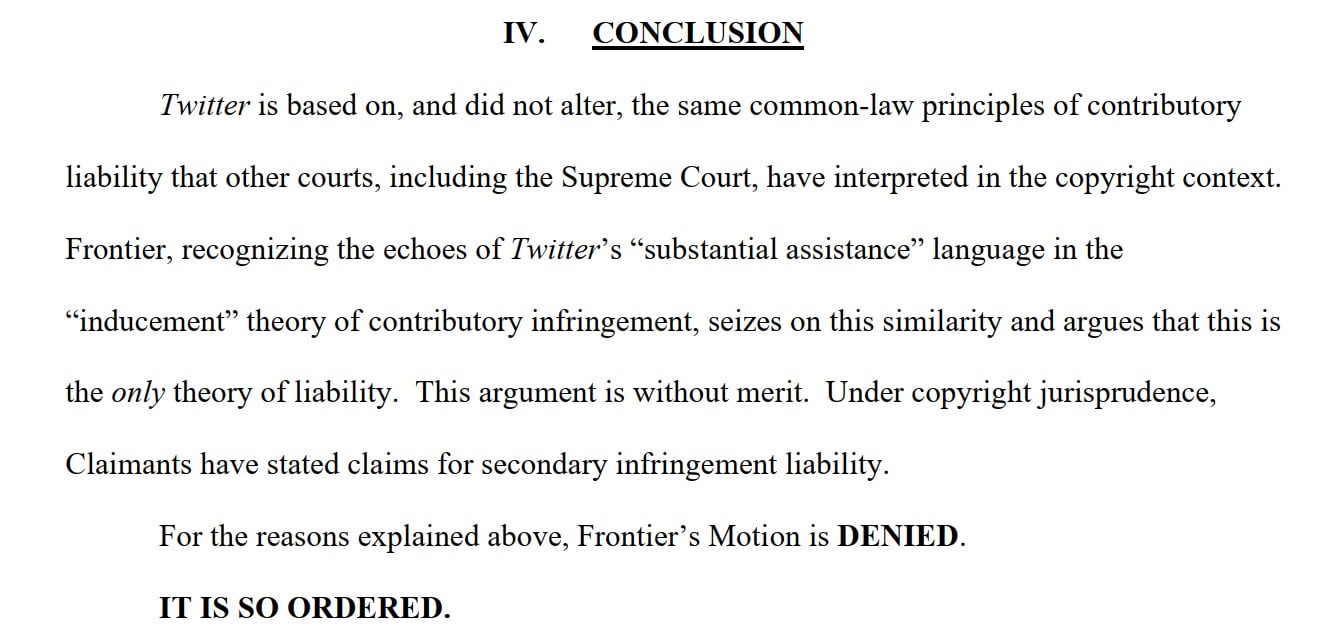
 Starting last year, various rightsholders have filed lawsuits against companies that develop AI models.
Starting last year, various rightsholders have filed lawsuits against companies that develop AI models.
